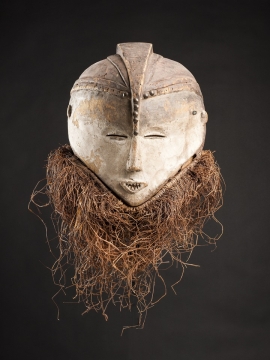Interest in and the potential of ethnographic and non-European collections is considerable because, as witnesses of our past, they enable us le learn more about various cultural traditions. Responsibility for the preservation of such collections often lies in the private sector, with missionary collections in monasteries or convents, for example, or ethnographic collections in private homes.
The trustees of ethnographic collections often find themselves faced with practical questions about issues such as management of a storehouse, how to exhibit items or raise awareness about the collections, whilst future decisions on management, valuation and selection of items also have to be tackled.
This study day on « Ethnographic collections in private hands » has as its objective to examine some of these issues and provide some answers. The morning will be devoted to plenary sessions whilst in the afternoon participants will have the opportunity to speak with contributors and discuss specific problems. The day will end with a visit to the ‘Giant masques from the Congo’ exhibition. Administrators and trustees of missionary collections – congregations and religious orders – are warmly invited to attend the study day.
The study day has been jointly organised by ETHNOCOLL (www.etnocoll.be), the Centre for Religious Art and Culture asbl (www.crkc.be ) and the Union of Religious Orders of Flanders (www.urv.be). Attendance at the event is free but registration beforehand is obligatory.
Practical details
Date: Monday, 5 October 2015, from 9h30 to 16h
Location: BELvue Museum of Brussels, 7 Place des Palais, 1000 Brussels (www.belvue.be ).
Participation: free, but early registration is obligatory (before 28 September) by e-mail to Ms Isabelle Carpentier at [email protected]
Programme:
09h30 – 10h00: Welcome
10h00 – 10h10: Welcome address by Dominique Allard, Managing Director, King Baudouin Foundation
10h10 – 10h45: Introduction and evaluation framework (Julie Aerts, CRKC, and Pauline van der Zee, University of Ghent)
10h45 – 11h10: Audio-visual collections (Luc Vints, KADOC)
11h10 – 11h25: Break/Coffee break
11h25 – 11h50: The problem of storage (Jurgen Vanhoutte, FARO)
11h50 – 12h15: How a collection can be exhibited (Ruben Boon, Damiaan Vandaag)
12h15 – 12h45: How a collection can be exhibited with/at a partner organisation (Case history by the Order of Jesuits and Julien Volper (KMMA-MRAC)
12h45 – 13h45: Lunch
13h45 – 14h35: Workshop 1: (limited) choice of themes
14h35 – 15h30: Workshop 2: (limited) choice of themes
15h30 – 16h15: Guided visit of the 'Giant Masks from the Congo’ exhibition
16h15 – 17h00: Conclusions and reception
The ETHNOCOLL platform brings together institutions established in Belgium that have ethnographic and non-European collections. Collectively it deals with common issues such as the return of objects, the visibility of collections, research and training, restoration and cooperation with source communities. Participants in the working groups are people working in museums and with archives, as well as managers of university collections. ETHNOCOLL is facilitated by FARO, the Flemish interface association for cultural heritage, and by the King Baudouin Foundation.
